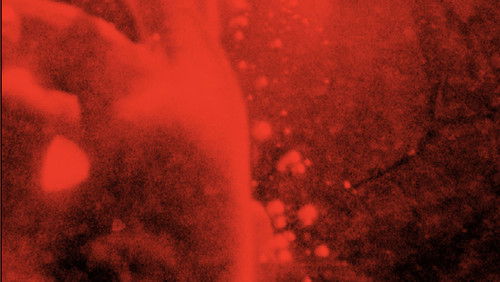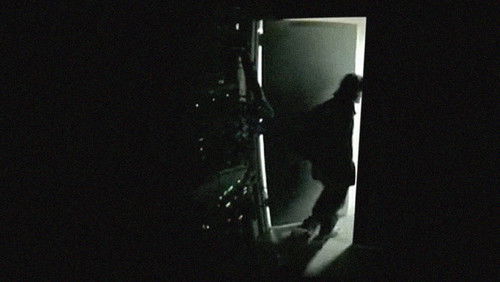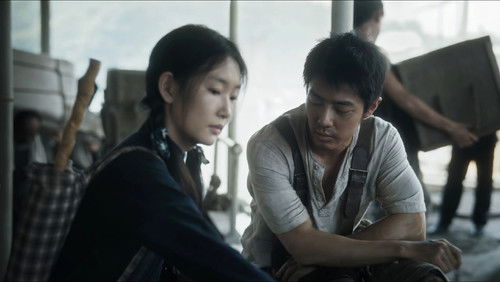Onkel Toms Hütte (1927)
55KOnkel Toms Hütte: Directed by Harry A. Pollard. With Margarita Fischer, James B. Lowe, Arthur Edmund Carewe, George Siegmann. Slavery tears apart a black family in the South before the start of the Civil War.
“While it is a great shame that, apart from James Lowe there are no African Americans in any other major roles, one sometimes needs to be positive about such things and give praise and recognition to what little there is. And there is a veritable galaxy of black stars amongst the minor roles. There is Louise Beavers, Gertrude Howard and Mildred Washington and, amongst the children, once and future Our Gang stars, Pineapple (Eugene Jackson) and Stymie (Matthew Beard) as well as Hannah Washington (who appeared in one of the rival u0026quot;gangu0026#39; films)and all the baby Potts. The very brief scene where the black women discuss with irony the horrific u0026quot;whiteu0026quot; wedding of George and Eliza is one of the most telling moments in the film. u003cbr/u003eu003cbr/u003eOne reviewer notices the presence of George Siegmann from Birth of a Nation (he was however an enormously prolific actor) but fails to spot Griffithu0026#39;s fellow Kentuckian, the wonderful Madame Sul-Te-Wan who provides for my money some of the most electrifying seconds of black defiance in that wretched Griffith film.u003cbr/u003eu003cbr/u003eThe really shocking thing about this million-dollar extravaganza is how regressive it is in its racial politics by comparison with the 1914 version. That film had an African American lead (the great Sam Lucas) but few if any other African American actors. Nevertheless its emphasis was fairly and squarely on the predicament of black people. In this film the whole story has been dissolved into a kind of u0026quot;Southernu0026quot; western with all the typical nostalgia for the elegant, aristocratic South in the good old days of slavery (much as one will find again in Gone With the Wind).u003cbr/u003eu003cbr/u003eSo, whereas the 1914 film begins by emphasising the ghastliness of slave-owning and the imperative for most African Americans to escape somehow to liberty (Shelby being quite clearly shown as an EXCEPTIONAL slave-owner), here the exact opposite is done with the Shelbiesu0026#39; u0026quot;gentle rule of the slavesu0026quot; being specifically misrepresented – one can hardly believe oneu0026#39;s eyes – as u0026quot;typical of the Southu0026quot;. Except for a bad egg or two, slavery was a sheer pleasure, where black folk could play music, dance and eat water0-melons to their heartsu0026#39; content.u003cbr/u003eu003cbr/u003eI am loath to criticise any black actor but Lowe is every inch an u0026quot;Uncle Tomu0026quot;. The story if well known. The great black actor Charles Gilpin (later the original stage Emperor Jones) was to have played the part but was rejected as being too u0026quot;aggressiveu0026quot; and the part given to the almost unbearably docile Lowe. Again one prefers Sam Lucas in the part in the 1914 version but it would have been good to have seen the Gilpin version.u003cbr/u003eu003cbr/u003eThe 1914 film, although it of course preceded Griffithu0026#39;s racist epic Birth of a Nation, has a clear and conflictual relationship with the Griffith film which could even be seen as a perverse response to it. This film on the other hand seems pretty much like a continuation of Griffithu0026#39;s work. u0026quot;The old Kentucky homeu0026quot; (vomit, vomit). It was indeed as just such a u0026quot;correctiveu0026quot; to Stoweu0026#39;s novel that Dixon had envisaged the trilogy of novels that included the Klansman on which Griffithu0026#39;s epic is based. And between Dixon and Griffithu0026#39;s portrayal of slavery as the natural order of things via this u0026quot;revisionu0026quot; of Beecher Stowe to the retrospective (and only mildly apologetic) defence of slavery one finds in Gone With the Wind, there is an absolute continuum.u003cbr/u003eu003cbr/u003eAnd as for the stereotypes – picaninnies and water melons and all the erst of it – it is appalling to behold and again one finds none of this rot in the 1914 version. The 1914 version is not a wonderful film – it is a very rushed. low-budget account – but it at least has some kind of integrity. Here Laemmle and Pollard disgracefully cut everything out of the film that might have made it a more genuine criticism of racist America (the racist America that still existed – and still exists? – quite as much as the one that had existed in the 1850s) for fear of a white backlash.u003cbr/u003eu003cbr/u003eA nasty element even in the original book is the way the angelic Shelby actually supports the system he supposedly rejects. In this version Shelbyu0026#39;s behaviour is even more grotesque than in either the book of the 1914 film – u0026quot;Hello, Jim Crow – how about a little dance!!!u0026quot; – but his supine hope that the runaways do not get caught is seemingly sufficient to qualify him as a thoroughly decent u0026quot;Southern gentlemanu0026quot;). We are on the way here to that later classic of disguised racism – To Kill a Mocking Bird – where it is not the plight of the negro that is to be pitied but that of the long-suffering u0026quot;whiteu0026quot; liberal.u003cbr/u003eu003cbr/u003eThere are of course rather a lot of bad eggs in the story (the film can hardly change that) but the conflation with the Civil War (nothing to do with the novel) allows the u0026quot;Lincolnu0026quot; card of unification to be played (again very Griffith) and all possible nastiness to be glazed over in a final apotheosis (the US cavalry as the heavenly host) where Tomu0026#39;s brutal murder is rather a secondary event and all focus is on the reunited family, a very white grandmother conveniently added (another change from the book) so that the film can come as near as dammit to suggesting that they are not really blacks at all….u003cbr/u003eu003cbr/u003eIt is a beautiful film (in terms of its production) but the beauty cannot make up for the racist beast that lurks throughout this film….”









